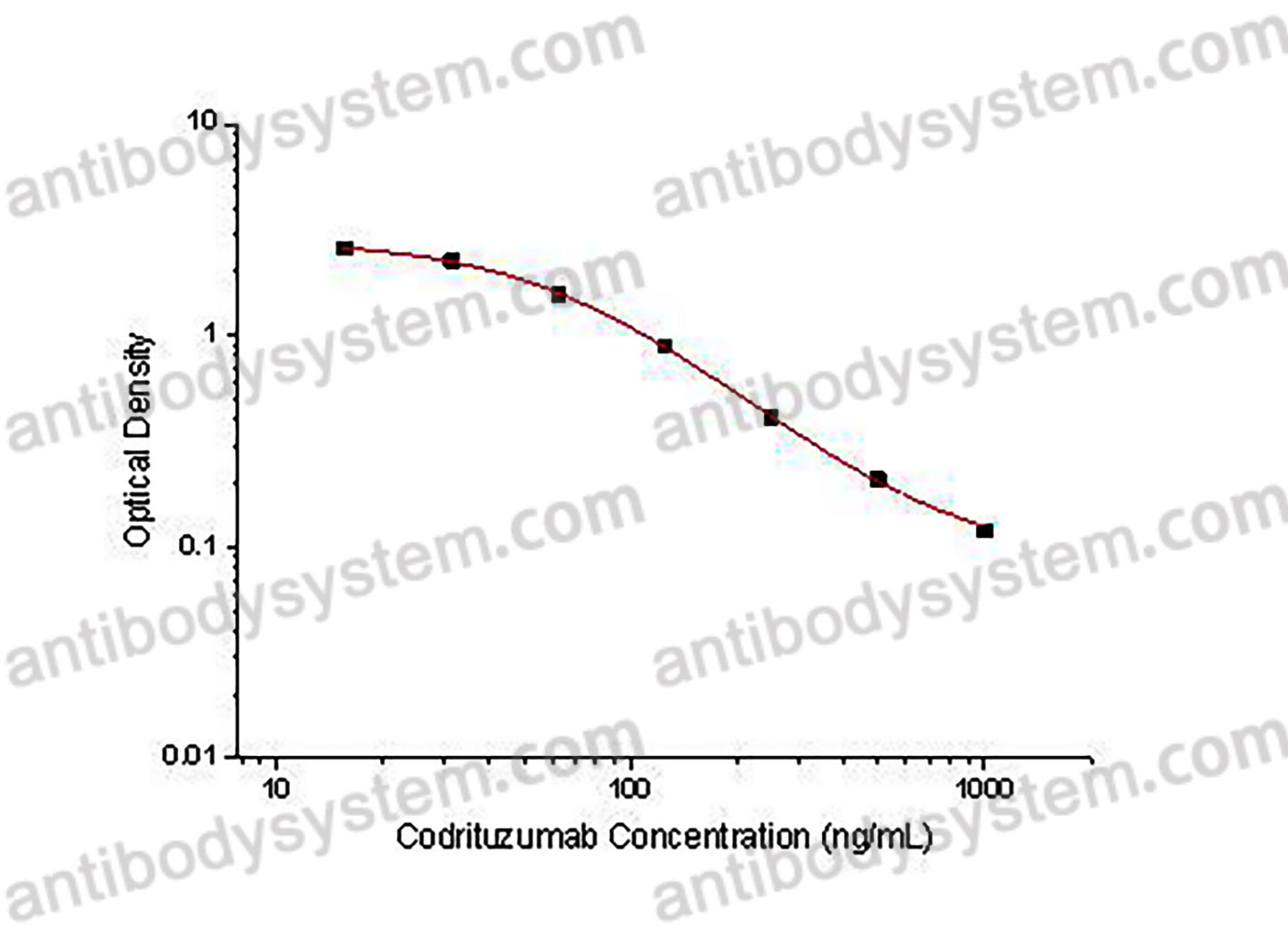Catalog No.
KDE84601
Description
PRINCIPLE OF THE ASSAY This assay employs the quantitative competitive enzyme immunoassay technique. Recombinant Human GPC3 has been pre-coated onto a microplate. Standards or samples are premixed with biotin-labeled antibody and then pipetted into the wells. Codrituzumab in the sample competitively binds to the pre-coated protein with biotin-labeled Codrituzumab. After washing away any unbound substances, Streptavidin-HRP is added to the wells. Following a wash to remove any unbound enzyme reagent, a substrate solution is added to the wells and color develops in inversely proportion to the amount of Codrituzumab bound in the initial step. The color development is stopped and the intensity of the color is measured.
Applications
Used for the quantitative determination of Codrituzumab concentration in serum and plasma.
Detection method
Colorimetric
Sample type
Plasma, Serum
Assay type
Quantitative
Range
15.63 - 1,000 ng/mL
Sensitivity
12.31 ng/mL
Precision
Intra-Assay Precision (Precision within an assay): <20%
Three samples of known concentration were tested sixteen times on one plate to assess intra-assay precision.
Inter-Assay Precision (Precision between assays): <20%
Three samples of known concentration were tested in twenty four separate assays to assess inter-assay precision.
|
|
Intra-Assay Precision |
Inter-Assay Precision |
||||
|
Sample |
1 |
2 |
3 |
1 |
2 |
3 |
|
n |
16 |
16 |
16 |
24 |
24 |
24 |
|
Mean (ng/mL) |
461.1 |
117.8 |
34.3 |
499.7 |
122.0 |
33.1 |
|
Standard deviation |
46.5 |
4.6 |
3.5 |
41.7 |
7.6 |
4.1 |
|
CV (%) |
10.1 |
3.9 |
10.3 |
8.3 |
6.2 |
12.5 |
Recovery
80-120%
Shipping
2-8 ℃
Stability and Storage
When the kit was stored at the recommended temperature for 6 months, the signal intensity decreased by less than 20%.
Alternative Names
GC33, RG7686, RO5137382, CAS: 1365267-33-9
Background
Codrituzumab is a humanized monoclonal antibody targeted at glypican-3 (GPC3), which is a member of the glypican family. This drug is developed by Chugai Pharmaceutical in combination with Roche and has been investigated in the treatment of liver cancer. The specific expression of GPC3 is high in hepatocellular carcinoma (HCC) tissues, which suggests that GPC3 has obvious sensitivity and specificity in the diagnosis of hepatocellular carcinoma, and can be used as a new target for the treatment of hepatocellular carcinoma. Codrituzumab did not show significant inhibition of GPC3 in the phase I trial in combined with sorafenib and the phase II trial placebo-controlled study in patients with advanced liver cancer. Codrituzumab did not show significant inhibition of GPC3 in phase I trials and phase II trials combined with sorafenib in patients with advanced liver cancer. However, the effect of codrituzumab in the treatment of liver cancer is still under study. In 2018, researchers conducted trials such as the distribution of codrituzumab and the impact of overall survival in patients with hepatocellular carcinoma. In the combined analysis of tumor cell surface antigen GPC3 and NK cell surface antigen CD16 in patients with liver cancer, it was found that codrituzumab only had a certain therapeutic effect on patients with high expression level of GPC3 and CD16. These results suggest that GPC3 and CD16 can be used as a composite biomarker to select hepatocellular carcinoma patients for codrituzuma.

